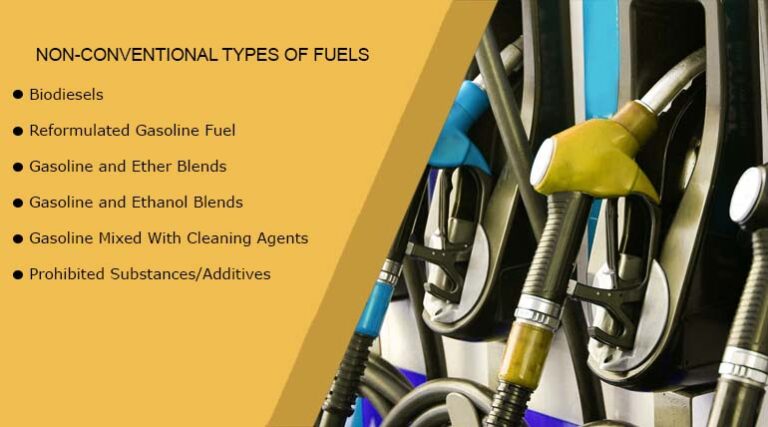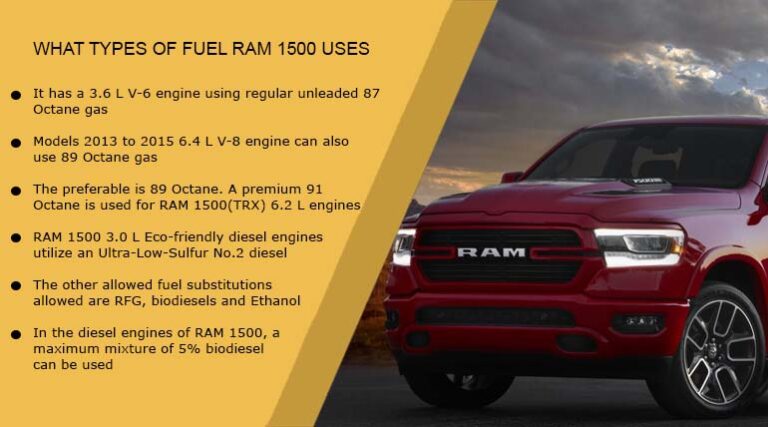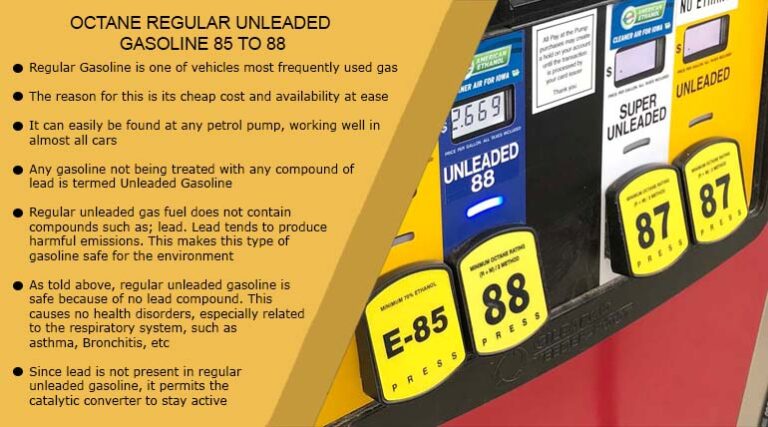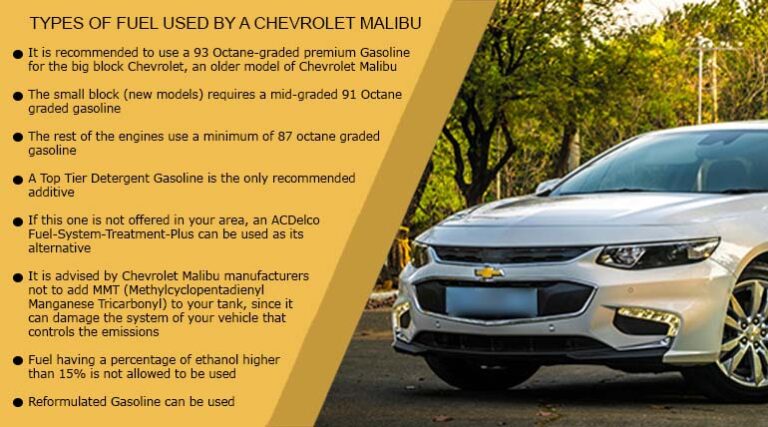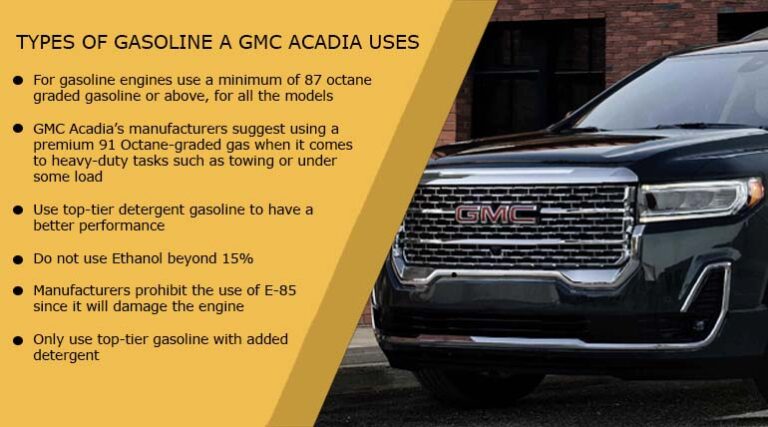Gasoline Types A Dodge Challenger Requires To Function Well
This article will cover up all about the exact gasoline types a Dodge Challenger requires to function properly. We will sort out all of your queries and confusion regarding other possible fuel variations available in the market for your Dodge Challenger.
However, before we move into the details, let’s first move to a brief introduction of the Dodge Challenger.
Dodge Challenger is an automobile with a pony class, which an American automobile company Dodge manufactured back in 1969, with its first model year to be 1970. It is a series of total 3 generations, and two out of these three are pony-cars. We will further talk in detail about the type of fuel it requires to function well and compatible with all of the generations of Dodge Challenger in this article.
Let’s go through a brief overview of this writing regarding the correct types of gasoline for a Dodge Challenger, before jumping into the explanation;
To summarize, Dodge Challenger gasoline engines take a minimum of 87 octane-graded gasoline to 89 octane-graded gasolines for its 3.6 L, 3.7 L and 5.7 L (automatic) engines. However, manufacturers of Dodge Challenger recommend using 89 octane-graded gasoline for a better performance. Do not use Ethanol beyond 10% for 2007 to 2015 Dodge Challenger and beyond E-15 for 2015-onwards models. Only use top-tier gasoline (with added detergent). Use a premium 91 octane-graded gasoline for 5.7 L (automatic), 6.2 L and 6.4 L engines.
Related article: Types of Fuel a Dodge Durango Uses
What is the Importance of Using the Correct Type of Dodge Challenger?
However, now the query arises, why is it so important to know about the correct type of fuel for your Dodge Challenger? The response to this is simple; to guard your engine against damage and accidents of fire and to keep your warranty away from being void.
Model Year-Wise Type of Gasoline A Dodge Challenger Uses
However, by using the databases of the manufacturers, forums, and reviews of people around the globe driving a Dodge Challenger, all the data here concerning the correct types of gasoline for your Dodge Challenger, according to its three generations and their corresponding engines, is well-researched and collected to assist you so that you can enjoy fully out of your vehicle. Let’s begin!
The Dodge Challenger – Model Year – 2007 to 2010
Engines under Dodge Challenger model years 2007 to 2010 function well on a minimum of 87 octane-graded gasoline to 89 octane-graded gasoline for its 3.7 L and 5.7 L (automatic) engines. However, manufacturers of Dodge Challenger recommend using 89 octane-graded gasoline for a better performance. Use a premium 91 octane-graded gasoline for 5.7 L (automatic), 6.1 L engine.
The Dodge Challenger – Model Year – 2010 to 2015
Engines under Dodge Challenger model years 2010 to 2015 function well on a minimum of 87 to 89 octane-graded gasoline for its 3.6 L, 3.7 L and 5.7 L (automatic) engines. However, manufacturers of Dodge Challenger recommend using 89 octane-graded gasoline for a better performance. Use a premium 91 octane-graded gasoline for 5.7 L (automatic), 6.4 L engine.
Do You Know?
There are differences between gasoline-based and diesel-based engine. Fuel type is chosen on the basis of the engine’s type in your vehicle.
The Dodge Challenger – Model Year – 2015 to Present
Dodge Challenger model years 2015 to present function well on a minimum of 87 octane-graded gasoline to 89 octane-graded gasoline for its 3.6 L, 3.7 L and 5.7 L (automatic) engines. However, manufacturers of Dodge Challenger recommend using 89 octane-graded gasoline for a better performance. Use a premium 91 octane-graded gasoline for 5.7 L (automatic), 6.2 L (super-charged) and 6.4 L engine.
Kinds of Fuels Other Than Conventional Gasoline
Which Other Varieties of Fuel Are Compatible With Dodge Challenger?
Today, we have various fuel options for our automobiles, from Reformulated Fuel (RFG) to different additives and blends. But the question is, are these gasoline types even compatible with Dodge Challenger? Do they have any side effects?
We will address this question quickly in the below section of this article, so STAY TUNED!
Gasoline comprising Methylcyclopentadienyl Manganese Tricarbonyl (MMT)
It is suggested by the manufacturers of the Dodge Challenger not to add any additive which is based on Manganese since it can damage the system of your vehicle that controls the emissions. If it is used in vehicles in which its usage is not recommended, it can lead to much harm.
Gasoline comprising Methylcyclopentadienyl Manganese Tricarbonyl (MMT) was used to improve the octane of fuel with poor quality and to seize the knocking noise produced by engines back then.
Biodiesels
Biodiesel oils are very nature friendly since they are soyabean oil derivatives. Canola and yellow grease are the sources and are biodegradable. Although biodiesel oils are very nature friendly since they are derived from cooking oil (wasted), vegetable, and soybean oils, through a process called “Trans-esterification”,.
But Dodge Challenger engines do not use biodiesels since they are only compatible with diesel-based engines, which the Dodge Challenger does not offer.
Reformulated Gasoline Fuel (RFG)
It is allowed by the Dodge Challenger manufacturers to consume RFG, whenever it is available, over a non-reformulated gasoline fuel. It is also best recommended for the area having smog at a higher concentration to decrease air pollution.
For cleaner and greener burning, and with a nature-friendly impact, Reformulated Gasoline (RFG) is produced, which causes reduced smog, and less toxic pollutants than regular gasoline, having no negative impacts. It is said to increase the miles per gas number of your vehicle.
Dodge Challenger Manufacturer’s Suggested Fuel
Dodge Challenger owners recommend using Top-tier detergent gasoline, which keeps the engines clean and away from debris. Use a minimum of 87 to 89 octane-graded gasoline (Regular, unleaded).
According to the owner’s manual, always keep a check on the fuel when travelling up the hill or at a higher altitude. Because most of the gas stations offer gas with below 87 Octane rating, which is harmful to the engines, always keep some extra fuel with you when travelling!
Gasoline to Oxygenated Blends (Ethanol)
For Dodge Challenger, do not use Ethanol beyond 10% for 2007 to 2015 Dodge Challenger and beyond E-15 for 2015-onwards models (gasoline and ethanol blends) or less than 10% ethanol.
Gasoline with Added Cleaning Agents, Corrosion and Agents (Stability)
To keep your engine clean, safe, and up to the standards of emission, TOP-TIER detergent gasoline is highly recommended for Dodge Challenger manufacturers.
It is suggested that the Dodge Challenger should utilize a gas mixed with a large concentration of agents used for cleaning. Cleaning agents such as; additives are recommended so that your vehicle remains safe from deposits and debris and to keep your vehicle’s engine free from the excessive buildup of Carbon in the valves and injectors.
These are readily available with your nearest top-tier retailers. These cleaning additives (free of harmful substances) increase the performance of your car.
Additives prohibited by Dodge Challenger manufacturers include;
- Solvents
- Methanol
- Silicon
- Any metal-based ones
- Kerosene
- Additives based on metals
You may want to read: Types of Fuel Used By A GMC Sierra
Point to Ponder!
“My Dodge Challenger Engine Knocks Afterwards Refilling”- What Does It Indicate?
If you put a lower than 87 octane-rated gasoline in your Dodge Challenger, it degrades the performance and economy of the engine. Gasoline will burn prematurely if one puts a lower-octane gas in a machine with higher compression. It causes an unsmooth burn and engine knock.
Hence, it is highly crucial to use the correct gasoline fuel with the right octane grading.
If you hear a fainted-knocking sound from your Dodge Challenger engine, it indicates no danger. But if you hear a loud knocking sound from your Dodge Challenger’s engine, it is due to the usage of a lower quality and lower octane gasoline.
How Can I Reduce “Knocking Noise” from My Dodge Challenger Engine?
To reduce the knocking-like noise in your Dodge Challenger, fill up your tank with a recommended minimum of 87 Octane-graded gasoline or a mid-graded 91-octane gasoline or greater. Use at most 87 octane-graded gasoline.
Can All the Generations of Dodge Challenger Consume RFGs as Fuel?
You must be pondering if all generations of Dodge Challenger are suitable for using Reformulation Gasoline Fuel, so the answer to this is YES!
Dodge Challenger can utilize RFGs, as a fuel option whenever it is available since it has also been compulsory for almost nineteen states and regions in the United States of America to use less toxic fuel to protect the quality of air.
How to Locate a Flex-Fuel Vehicle?
Following are the ways to locate a flex-fuel engine in your vehicle;
A yellow bezel surrounding the inlet of the fuel tank indicates that your vehicle is flex-fuel. If you are unable to find it there, then you can check out the door of your fuel tank as well.
However, Dodge Challenger manufacturers do not allow it to run the engine on an E-85, even if it is flex-fuel.
Dodge Challenger Users’ Reviews – Regular or Premium Gasoline, Which One Do They Recommend?
After leading revisions from various forums, and reviews of the people using Dodge Challenger globally, the conclusion is that; the regular, unleaded gasoline with 87 Octane-rating has proved to work well for them, for the generations and model years of Dodge Challenger.
But the owners recommend using a premium 91 octane gasoline for for 5.7 L (automatic), 6.2 L (super-charged) and 6.4 L engine. However, they recommend using for its 3.6 L, 3.7 L and 5.7 L (automatic) engines.
Conclusion
Dodge Challenger is an automobile with a pony class, which an American automobile company Dodge manufactured back in 1969. It had its first model year to be 1970. It is a series of total 3 generations, and two out of these three are pony-cars.
About the gasoline types a Dodge Challenger gasoline engines take, it is a minimum of 87 to 89 octane-graded gasolines for 3.6 L, 3.7 L and 5.7 L (automatic) engines.
However, manufacturers of Dodge Challenger recommend using 89 octane-graded gasoline for a better performance. Do not use Ethanol beyond 10% for 2007 to 2015 Dodge Challenger and beyond E-15 for 2015-onwards models.
Only use top-tier gasoline (with added detergent). Use a premium 91 octane-graded gasoline for 5.7 L (automatic), 6.2 L and 6.4 L engines.



